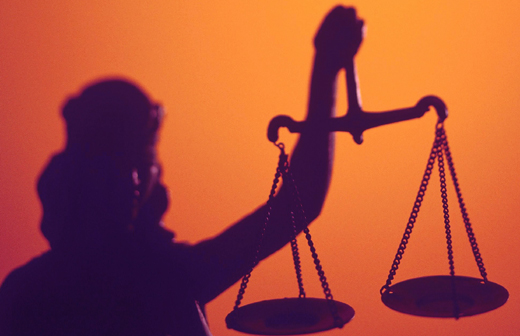The Trauma of Indian Judiciary
The Trauma of Indian Judiciary
Mangalore Today News Network
By V. Mohan Rao
Mangaluru, Oct 10, 2016: Legal profession is termed as a noble profession. As a member of the legal fraternity I had the privilege to represent my legal firm Bangalore law associate as one of their advocate to handle cases in the Debt Recovery Tribunal Court Bangalore. Subsequently I joined the panel of advocates of Canara Bank and also practiced as an advocate under a senior advocate in the Karnataka High Court Bangalore in company law matters.

Our legal system is one of the best in the world which is inherited from British legal system during the rule of British in India. Subsequently there has been several amendments to the Indian law keeping in tune with the Indian legal requirements. The government has also scrapped over 200 laws which have become obsolute over a period of time.
The Indian court system is undergoing a severe strain despite the fact that citizens have reposed their faith in the Indian judiciary process. However this faith is undermined by efficiency of the courts which has reached its nadir. This has resulted in justice delayed that tantamounts to justice denied or justice derailed.
The number of case pending in the civil courts is mind boggling at 2.7 crores. The pendency of cases in high courts is none the better. Given below is a table of cases pending in different courts.
Supreme Court - 59021
High Court- 4005704
Subordinate Court - 27156020
Debt Recovery Tribunal Court - 70,000
Of the 4005704 cases pending in high courts, Allahabad court tops with 1032077 followed by Punjab and Haryana High court with 293808 cases. The least number of cases pending is in Sikkim high court at 97 cases. The Karnataka High Court has 226191 cases pending. The total pending cases in all high courts and subordinate courts in India is 31161724, cases that are pending for over five years in High courts and subordinate courts in 8116777. The huge back log of cases gives an inference that a honest litigant especially a senior citizen has remote chance of getting an expeditious judgment from the courts.  It is alleged that the government is responsible for the huge back log of the cases in the courts and this has been corroborated by the jurists. For instance a civil case filed by a state government authority in 1961 to evict the resident of government land had been contested by the residents on the plea that they have been living there for generations. The district court finally dismissed the case last year after a lapse of nearly 55 years, just imagine how many senior citizens who contested the case are still alive.
It is alleged that the government is responsible for the huge back log of the cases in the courts and this has been corroborated by the jurists. For instance a civil case filed by a state government authority in 1961 to evict the resident of government land had been contested by the residents on the plea that they have been living there for generations. The district court finally dismissed the case last year after a lapse of nearly 55 years, just imagine how many senior citizens who contested the case are still alive.
Public interest denotes any public citizen who has the larger interest of the public, general welfare and interest of the masses. Such a person can initiate a legal action in a court of law with the purpose of enforcing a right or remedy expeditiously. His petition would be treated as Public interest litigation-PIL. Even though the PIL is considered as a quicker method of seeking justice the fact remains that PIL in some cases get stuck up for a considerable period. For instance a PIL petition filed in the apex court in July 1992 is still pending for disposal despite a lapse of over 24 years. The undue delay and lackadaisical attitude of the government demoralizes the complainant.
The main pointer to delay in disposing of the cases in all courts in undoubtedly the overburdened judges due to shortage of judges in the courts. It is really astonishing to observe that there are only 12 judges per million people. The Supreme Court in UK handles only 150 cases in a year in comparison to about 1000 cases dealt with in supreme court in India. To mitigate this problem it is imperative that sufficient judges need to be appointed in courts to handle unimaginable pending cases. However the government has not done much which has been exemplified by low budgetary allocation.
Recently the chief justice of India TS Thakur was emotional when he broached the position of the judges in the presence of Prime Minister Narendra Modi. He made forceful argument on the necessity of increasing the number of judges to handle the huge back log of cases in all courts. He did not mince words when he stated the ratio of judge population was mere 12 judges per million people. He further substantiated his comments by stating that judges have to put up with the poor infrastructure and minimum support staff, despite handling over 150 cases a day. Justice Thakur brought to light the depleted strength of the high court judges which was further compounded by the Status Quo in appointment of National Judicial Appointments Commission (NJAC).
The worst affected litigation pertains to civil cases which are in a limbo on a regular basis. These cases normally pertain to property matters viz-a-viz inheritance and succession. Though the law with all its amendments is crystal clear on inheritance and succession, the male kartha is reluctant for the smooth devolution of the property to the co-parceners in the case of ancestral property. There are enough cases in the courts where the daughters are contesting for their rightful share in the ancestral property. It is pertinent to note that even married daughters are eligible for a share of the ancestral property. Such cases add up to the already back log of cases.
Sometimes the civil cases are dragged on for a considerable period either by the litigant or his lawyer on flimsy grounds. I shall narrate about a Debt Recovery Tribunal case handled by me during my tenure in a legal form in Bangalore. I represented Canara Bank as their advocate. The defendant’s lawyer was a senior advocate and hence I was skeptical about winning the case. The case was adjourned nine times, on the eight hearing the defendants advocate pleaded the inability of his client to appear before the court and prayed for adjournment of the case due to client’s father’s demise and hence the case was adjourned. On the ninth hearing the defendant appeared before the court san the advocate and prayed for adjournment of the case due to his father’s demise. Despite my objection to the adjournment the court adjourned the case. Fortunately for me the DRT rule was amended where by the Debt Recovery Tribunal Court will not take cognizance of a case that has been previously heard in a civil court. I bought this to the notice of the court vide my memorandum in the next hearing stating that the DRT case was dismissed in the civil court, earlier. The presiding officer of the DRT court wanted to know from the defendants advocate whether the case was dismissed in the civil court to which the advocate replied in the affirmative. The Debt Recover Tribunal dismissed the case in favour of the Canara Bank.
What I am trying to drive home is that the courts adjourn cases umpteen number of times without going into the necessity of the adjournments.
Another reason for delay in judgment in a case is due to obtention of stay order by the litigant of the court. At times defendants go on appeal to the higher court even though the case is in the hearing stage in the lower court. This obviously delays the period of the case. When a case in delayed for a considerable period, justice gets denied. This is so because the witnesses turn hostile or are dead and in some cases the defendants have expired.
In any case documentary evidence is of prime importance, sometimes the court relies on circumstantial evidence as well. In a criminal case which was delayed for a considerable period due to lack of evidence, finally led to the acquittal of all accused. Most of the complainants petitioners expired during different stages of the case and the surviving complainants were unable to identify the accused.
There is no denying the fact that over 70 percent of the prisoners are under trials and have been languishing in the jails for long period of time. These prisoners are mostly the poor who are either not aware of the law or unable to meet the legal expenses, though in some cases the court appoints a amicus curiae. The delay in cases to be heard results in justice being derailed. In a particular criminal case that was filed in 1997, the session court pronounced death sentence life term to all the accused, however the same was over ruled by the High court in 2013 resulting in acquittal of all the accused. The reason behind the acquitted is alleged to be delay at every stage of prosecution. The FIR was filed much later, the charge sheet was filed after the stipulated period of 90 days, after a lapse of some years after the crime was committed.
In a celebrities drink and drive case involving the death of the pavement dwellers, it was alleged that Police submitted a Fate Accompli report to the prosecutor which led to the acquittal of the accused by the high court. Apart from this, the evidence was goofed. Sometimes convictions and acquittals defy logic and tantamount to traversity of justice.
A bail is an affirmation of the principle of natural justice, a right guaranteed by the constitution of India. However in some cases bails are given indiscrimately I remember the apex court had once directed all lower courts to issue bails only in deserving cases and on merit. This aspect also contributes to the delay in final disposal of the cases.
National Court Management system has been set up to measure the efficiency of the judges. It also looks after disposal of cases on time, determines the maximum burden a judge can bear and management of cases so as to expedite its disposal. Despite setting up of the National Court of management system, the back log of cases has not shown any improvement. This is so because vacancies of judges are not filled up. For instance in the High Court’s there are more than 400 vacancies, though the sanctioned strength is 1016. The situation is worse in subordinate courts with 5000 vacancies.

National Court of Appeal:
The Supreme Court is dealing with all categories of cases in contrast to other supreme courts of the world. It entertains cases pertaining to mainte-nance, inheritance and succession, matrimonial disputes, Public Interest Litigation, disputes between centre and state bail applications, land lord and tenant disputes etc, besides other cases decided by the trail counts that goes to the high court on appeal, to rectify an error of judgment, if any by these courts. Access to justice is a fundamental right under article 21 of the constitution which guarantees the right to liberty. Hence it is incumbent for Supreme Court to entertain such petitionscases for enforcing the fundamental right to curtail the delay in judgments in the trial courts and high courts.
To obviate delay in Supreme Court Mr. KK Venugopal an eminent lawyer was appointed as amicus curiae by the Supreme Court, to hear the Public Interest litigation filed by advocate Mr V Vasanth Kumar a practicing advocate of Chennai for setting up of National Court of Appeal outside Delhi. The force behind the setting up the courts of the Appeal is that it would reduce the work load of the Supreme Court considerably, in as much as the work would be restricted to constitutional and national matters, specific power conferred on the supreme court pertaining to suits between the centre and states, differences of opinions among high courts, death sentence etc. These matters would be in exclusive preview of the Supreme Court and the proposed National Court of Appeal will not have any jurisdiction over the matters. The other cases like bail, land acquisition, rental disputes matrimonial disputes and miscellaneous matters would be transferred to the courts of appeal. This would tantamount to exclusive jurisdiction of courts of appeal on such matters and will not be subject to further appeal. The courts of appeal would also facilitate corrections of aberrations in the high court Judgments.
Article 130 of the constitution of India which pertains to the location of the Supreme Court has laid down that Supreme Court shall sit in Delhi or such other place or places as the Chief Justice of India may with the approval of the president from time to time deem fit.
Mr Venugopal went to the extent of proposing amendment of the constitution vide proposed Article 136 A whereby the national court of appeal would exercise powers exercised by the Supreme Court under article 136 of the constitution. However the powers under the article can still be invoked by the Supreme Court.
If the proposed amendment to the constitution is accepted by the centre, supreme court can concentrate more on hearing constitutional matters while the National courts of Appeal can hear other cases.
Another argument put forth for constituting the National Court of Appeal is that its establishment in four regions of northern, Southern , Eastern and Western would facilitate access to the litigants, who otherwise need to commute all the way to Delhi which would save time and expenses.
It is expected that setting up of National Court of Appeal can entertain appeals by special leave from the judgment of the High Courts in criminal, civil and revenue cases.
Besides the suggestions made for curtailing the delay in disposing of cases in various courts the following remedial measures may he adopted
1) Adjournments need to be limited and cases to be disposed of within a time frame
2) Civil and High Court vacations to be reduced
3) Adequate number of judges need to be sanctioned and appointed
4) More courts need to be sanctioned with adequate staff and infrastructure
5) Judgment need to be short, precise and understandable
There is no gainsaying the fact that there are only 18 judges for every 10 lakh people as against the recommended bench mark of 50 judges by the Law Commission. The lower courts which are entrusted to hear the cases for the first time need to have adequate judges to deal with the ever increasing cases. The subordinate courts are facing a shortage of 4430 judicial officers against a sanctioned strength of 20502 in 2015. Filling up the vacancies at state level is going to be herculean task, given the fact that there is acute dearth of court rooms to accommodate new judges that are to be appointed in a phased manner. However it is incumbent that infrastructure needs to be provided expeditiously instead of putting the cart before the horse.
The second important aspect is providing the right judicial talent; when the social and economic changes are manifesting into more court cases. This can be obviated by imparting quality law education and nurturing talent among the legal fraternity.
V. Mohan Rao is the Retd. Deputy Chief Manager of Bank of India, Chennai Main Branch and an Advocate.
- Need For ‘Students, Alcohol and Drugs’ survey
- New Synthetic Drugs Trapping Youth
- Mood Modifying Chips - Future of Drug Use
- Ramping up Indo-Bangla border security
- IITM- A premier educational Institution in a forest. What can we learn?
- Former PM, Manmohan Singh: Notable laws passed under his tenure
- Hashish on Ratnagiri Seashore
- The Poor cry out to Us: Do we respond?
- Clandestine Meth Labs Sprouting Across India
- Hydro ganja from Bangkok latest craze among youth in India
- "Memories to Treasure" Dr.Michael Lobo’s new book
- Dominance of Private Universities: Will it make education inaccessible to underprivileged students?
- Monti Phest: A rich heritage of South Canara
- Kashmir Bhavan in Bengaluru: A must visit place
- "MAI and I" Book of Angelic Emotions
- Draupadi Murmu - The New ’President of India’
- Anthony Ashram in the city grows a classic museum
- First College of Fisheries in India - A Golden Jubilarian
- Flushing Meadows - A Vintage Mansion
- The Colonel�s Bequest
- A Mangalorean PM and his RBI Governor Brother: The Extraordinary story of the Benegal Brothers
- There is no higher religion than Truth: Theosophical Society
- L�affaire - Ashu & Yiju of Mangalore
- Mangalore in Kowloon
- 1568 to 2018 AD: 450 years of Christianity in Mangaluru
- Vice President elect Naidu moves on from nadir to zenith, the phenomenal journey
- Embracing the Outdoors: How Heated Jackets Are Revolutionizing Cold Weather Activities
- Efficient and Sustainable Packaging Solutions with FIBCs
- The Hybrid Kilt Revolution | Where Tradition Gets Trendy
- Affordable Elegance | Embrace Style on a Budget with Cheap Kilts
- Unleashing Style and Functionality | Exploring Tactical Kilts
- Mangalore’s Heroic Lady marks 105th Birthday
- Santa the Christmas spirit
- Geriatric care: Mangalore strikes a fine balance
- The Don Who Made Two Empires to Clash
- CHITRAPUR SARASWATS - A Great Kanara Community
- Our new President Ram Nath Kovind’s significant journey to Rashtrapathi Bhavan
- Marriages made in heaven, big fat weddings made in India
- Eid insight - The giver of glad tidings
- CITY INFORMATION
- TRAVEL
- TOURIST INFORMATION
- HEALTH CARE
- MISCELLANEOUS




 Write Comment
Write Comment E-Mail To a Friend
E-Mail To a Friend Facebook
Facebook Twitter
Twitter  Print
Print 


